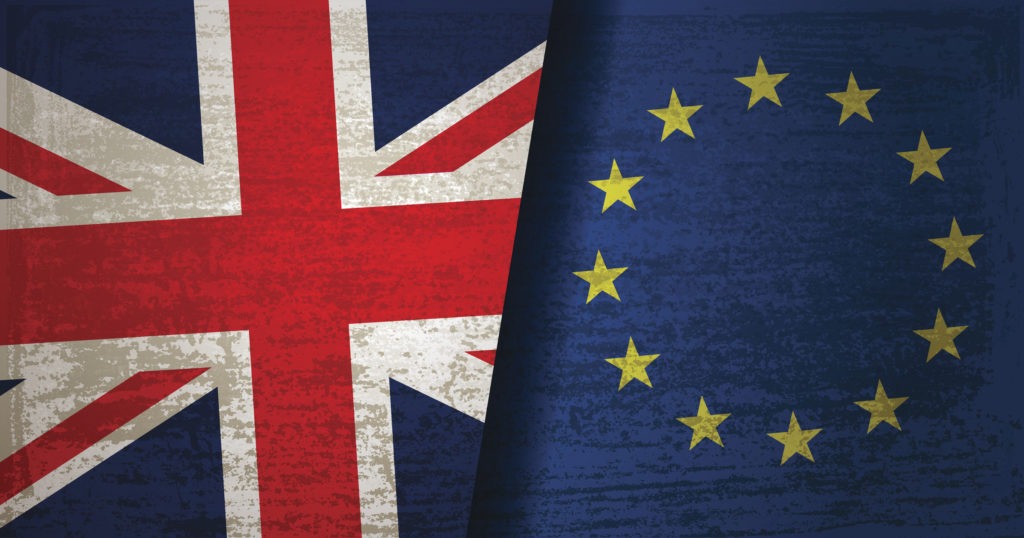UK manufacturers warn PM to scrap ‘no deal better than bad deal’ Brexit threat
28 March 2017

28 March 2017
On the eve of UK Prime Minister Theresa May’s expected triggering of Article 50 on Wednesday, UK manufacturers have urged May to scrap the idea that she is open to the UK leaving the EU without securing a new trade deal with the bloc. They warn that in such an event, they would suffer most from trade barriers with the EU.
May has decided to keep open the threat to the EU-27 that she will not be willing to accept a poor deal simply because the UK economy would be damaged otherwise. Some see this as a sensible tactic that avoids the EU thinking they can offer the UK a poor deal, because it would have to accept it anyway – the lesser of two bad options, with simply walking away always being worse.
Terry Scuoler, chief executive of the UK’s EEF manufacturing lobby, said: ′The idea of being able to walk away empty-handed might be a negotiating tactic, but it would in reality deliver a risky and expensive blow.’
However, May has also backed up this concept, dubbed ′no deal is better than a bad deal’, with her actions. She has decided to make immigration control her top priority for Brexit – rather than the economy – and has accepted therefore that she must compromise on economic matters – namely membership of the EU’s single market and customs union – in order to achieve this.
The EEF claims the UK’s EU manufacturing exports (cars, pharmaceuticals etc.), in the event of no deal, would face World Trade Organisation tariffs averaging 5.3%, alongside the perhaps even more egregious elongated customs procedures and compliance costs. May has already accepted the need for transitional arrangements to smooth the process (such as any erection of tariffs) after the UK leaves the EU as expected in March 2019 – following fixed two year negotiations.
However, worryingly despite the intense debate in the UK over the prospect, Britain’s Brexit minister David Davies has admitted that his department has not undertaken any serious work into the economic impact of leaving the EU without a trade deal. Manufacturing accounts for 10% of the UK economy, with the UK’s gigantic services industry (including the City of London European financial hub) also concerned about EU single market access, and the maintenance of tools such as ′passporting.’
Nevertheless, Davies has given some indication as to why the UK is keeping the possibility of no EU deal on the table. Analysis in the House of Lords suggests that the UK would not need to pay the EU ′exit bill’ – perhaps amounting to £50 billion (€58 billion) – if the EU fails to reach a deal with the UK post-Brexit. With EU finances already shaky and with the prospect of severe cuts once the UK leaves, this could play a considerable role in negotiations – with net-recipients from the EU budget, such as Poland and Eastern European states, set to lose most from this loss of funding.
Meanwhile, one of Europe’s biggest auto suppliers, Gestamp, currently undergoing the EU’s biggest flotation, has said it is confident to continue investing heavily in a post-Brexit Britain. It said it will remain investing in the UK in order to maintain close ties to the major car plants of the UK’s two biggest manufacturers Jaguar Land Rover and Nissan. Gestamp is a major auto employer in the UK, with seven facilities and nearly 2,700 people working there, including a large research and development plant in the North East, the region where Nissan is based.
Gestamp is one of only a few so-called tier 1 suppliers to be sited near to Britain’s major car factories. Nissan and others have called for the UK supplier base to be boosted to make the auto industry more resilient post-Brexit, so growing the current base (as expected from Gestamp’s flotation) is crucial. Gestamp came into the UK in 2004 under contract with Nissan’s Sunderland plant, the biggest in the UK. It then enlarged further in 2011 by buying the UK metal arm of Germany’s ThyssenKrupp.
Gestamp founder and chief executive Francisco Riberas said: ′We see no major impact [post-Brexit]. What you see in the car sector is not investment for just one year. You see investments for ten to fifteen years. They [the carmakers] cannot just change as they have to continue to make cars. My suggestion is that they will continue to make cars [in the UK] because of the investment they have made and because here in the UK they are competitive. Brexit does not affect us because we need to produce locally.’
OEMs seem to be taking a similar view to Gestamp, with Nissan, Jaguar Land Rover and Toyota all showing clear signs as having committed to a post-Brexit UK.